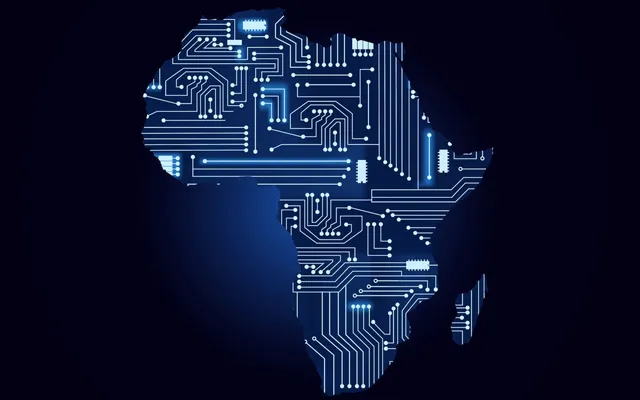Iran's Nuclear Program and Regional Tensions

Iran’s parliament has recently approved a bill to suspend cooperation with the International Atomic Energy Agency (IAEA), a move signaling Tehran's escalating frustration with international bodies. This decision follows a series of military strikes on Iranian nuclear facilities by Israel and the United States, as reported by state-affiliated Nournews. While the bill awaits final approval from Iran’s Supreme National Security Council, Parliament Speaker Mohammad Baqer Qalibaf asserted that Iran would “accelerate its civilian nuclear programme,” condemning the IAEA for its perceived failure to denounce the air strikes and accusing the agency of compromising its credibility. Earlier, the parliament’s national security committee had approved the bill’s general framework, which would halt surveillance camera installations, inspections, and reporting to the IAEA. This parliamentary action comes after the IAEA passed a resolution accusing Iran of breaching its non-proliferation obligations, a resolution Tehran claims facilitated Israel’s attacks, compounded by recent US airstrikes.
Despite claims of victory and complete destruction from figures like US President Donald Trump and Israeli Prime Minister Benjamin Netanyahu regarding the recent military actions, intelligence reports suggest a more limited impact on Iran’s nuclear capabilities. A preliminary assessment by the United States Department of Defense, corroborated by intelligence sources cited by CBS News, concluded that the American airstrikes merely delayed Iran’s nuclear program by a few months. These reports indicate that Iran’s enriched uranium reserves largely remained untouched, and only minimal damage was inflicted upon its centrifuges. The US military targeted key sites—Fordo, Natanz, and Isfahan—using “bunker buster” bombs, but most destruction was confined to surface-level structures, with underground equipment reportedly escaping significant harm. The White House, however, has publicly rejected these findings, with President Trump insisting the nuclear sites were “completely destroyed” and Defence Secretary Pete Hegseth stating the bombing campaign “obliterated Iran’s ability to create nuclear weapons.” In contrast, some US officials like Democratic Congressman Brad Sherman raised concerns about the actual impact, citing a lack of clarity on the status of Iran’s uranium stockpile and centrifuge infrastructure. Iran, for its part, has downplayed the effects, with a senior official claiming sites were evacuated and materials relocated beforehand, minimizing the “major blow.”
The escalating hostilities between Iran, Israel, and the United States have sent geopolitical tremors far beyond the Middle East, with a fragile ceasefire currently holding. For African policymakers, this situation demands close scrutiny across security, diplomatic, and economic vectors, each carrying potential risks for the continent. In the security sphere, the conflict risks drawing global powers like Russia, China, and NATO into another Middle Eastern quagmire, potentially turning Africa into an unintended theatre of competition. The repercussions of the Ukraine and Gaza conflicts have already manifested in economic, diplomatic, and security shocks across Africa, and a similar trajectory could see African countries caught in new ideological or military standoffs. North and East African states face particular exposure, with past incidents like Iranian projectiles over Cairo highlighting vulnerabilities. Furthermore, Western strategic interests may reprioritize, potentially leaving Africa’s security sectors under-resourced and less able to manage transnational threats, as evidenced by reduced attention during recent G7 and NATO meetings and Western retrenchment in the Sahelian theatre. Human security is also at stake, with concerns over large-scale migration into Europe from Middle Eastern instability diverting development funding and exacerbating existing strains from food insecurity and climate shocks. The conflict also risks inflaming religious and sectarian tensions within Africa’s multi-faith societies, with particular concern for Shiite groups in Nigeria potentially engaging in attacks in solidarity with Iran. Compounding these security risks is the spectre of nuclear proliferation, as Iran abandoning nuclear restraint could trigger a regional arms race, undermining Africa’s advocacy for nuclear disarmament under the Pelabanga Treaty.
Diplomatically, the crisis intensifies pressure on African states to take sides, forcing uncomfortable choices between Washington and Tehran, or the US and its rivals, with potential consequences like sanctions or aid withdrawal for defiance. South Africa, in particular, faces a delicate position due to its inconsistent foreign policy and proximity to Iran, with the US potentially reacting punitively to any perceived sympathy. Multilateral institutions like the United Nations Security Council and an expanded BRICS+ will also be tested, especially given Iran’s recent accession to BRICS, which could strain the bloc’s unity and confront African members like South Africa, Egypt, and Ethiopia with awkward choices. The erosion of international law in favor of ‘raw power’ politics threatens the framework protecting smaller, less powerful states like those in Africa, diminishing the continent’s collective influence and potentially emboldening expansionist African leaders. Africa’s collective voting strength at global forums could also erode, weakening its leverage on crucial issues such as debt restructuring, climate finance, and development aid.
Economically, the most immediate and tangible impact is global uncertainty sparking a ‘flight to safety,’ strengthening the US dollar and weakening African currencies. This increases debt servicing costs for dollar-indebted African sovereigns and spikes bond yields, further tightening fiscal pressures already strained by post-pandemic recovery and the Ukraine war. Energy security presents another looming flashpoint; disruption of the Strait of Hormuz, a crucial oil conduit, would send energy prices soaring. Net oil importers in Africa would suffer painful imported inflation, intensifying cost-of-living crises and complicating monetary policy designed to spur growth. Broader trade disruptions could drag the global economy into recession, severely affecting Africa. Depreciation-driven debt deterioration could complicate restructuring efforts in countries like Zambia, Ethiopia, and Ghana, while others such as Kenya and Nigeria face even tighter fiscal constraints due to high debt servicing. Limited fiscal buffers would force many African governments to divert development funds to cover external gaps, risking social unrest and eroding reserves. While rising gold prices could benefit producers like Ghana and South Africa, and higher oil prices boost revenues for exporters like Nigeria and Angola, these gains are unlikely to offset the broader economic harm from disrupted supply chains, slower global growth, and weaker demand for non-commodity African exports. In this volatile context, African leaders must proactively bolster security capacities, unify diplomacy to protect interests and uphold international rules, and build economic resilience through fiscal prudence, dollar de-risking, and deeper regional market development. The crisis, though raging abroad, casts sparks on African soil, necessitating the continent’s urgent preparedness for impact.










